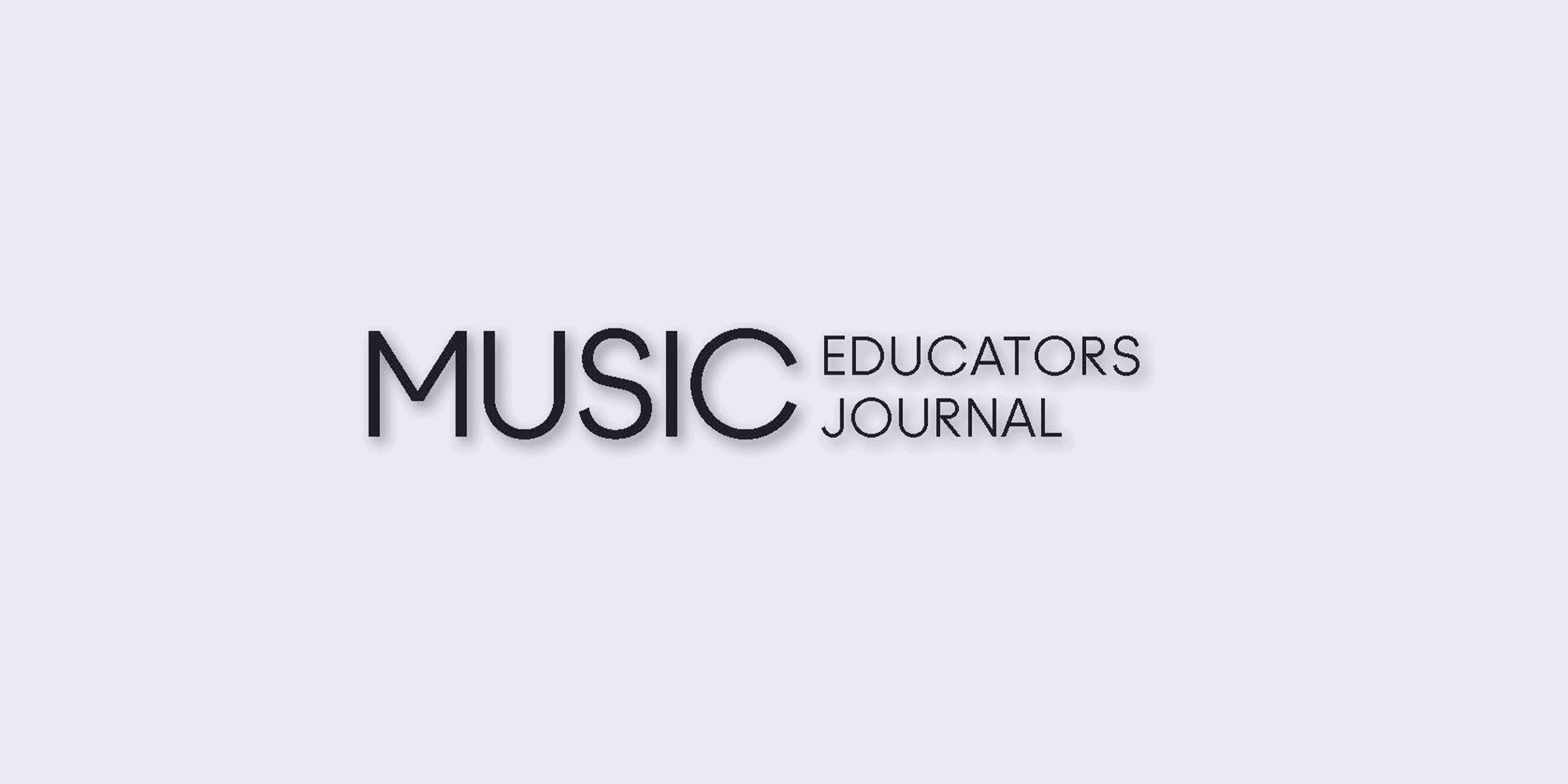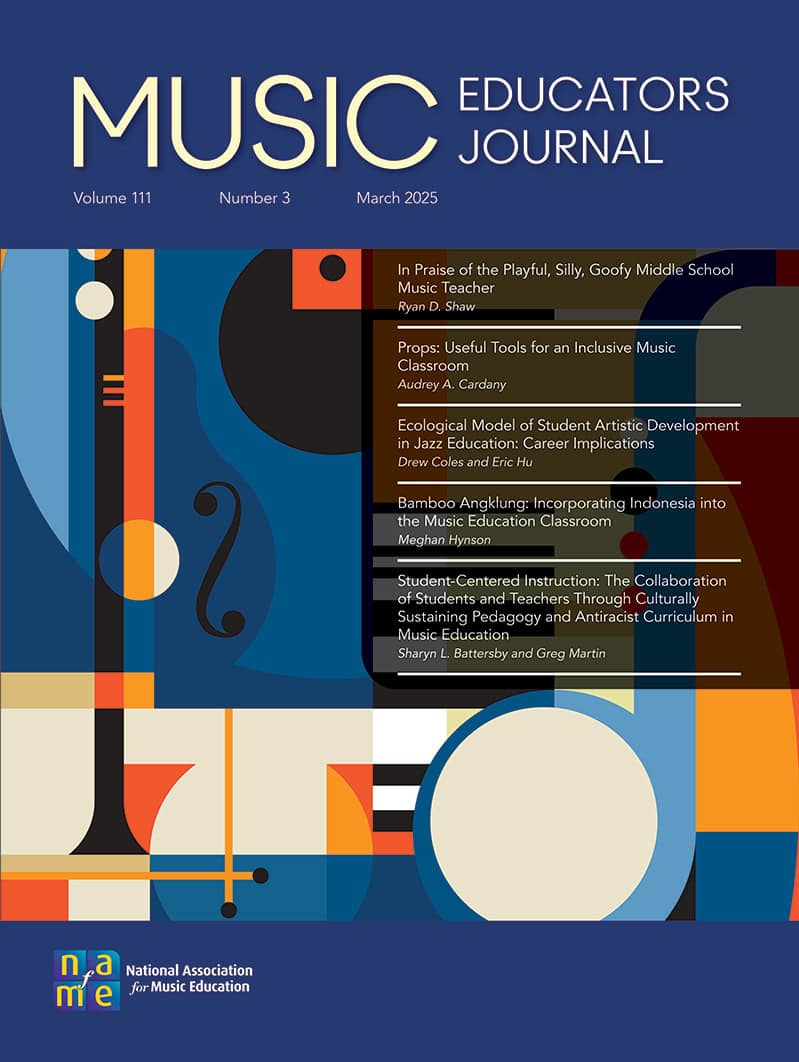Music Educators Journal
Published quarterly, Music Educators Journal offers peer-reviewed scholarly and practical articles on music teaching approaches and philosophies, instructional techniques, current trends and issues in music education in schools and communities and the latest in products and services. A digital subscription is included with your NAfME membership as is access to the online archive of back issues. (Print edition is available for an additional $20 subscription fee; please contact memberservices@nafme.org or 1-800-336-3768.)
- NAfME members, login to access journal issues. You will be returned to this page where a link to search for and view articles will be visible above the journal cover image.
- Guidelines for Contributors
- Writing for MEJ (Webinar by Academic Editor Lisa Martin, May 2025)
- Editorial and Advisory Committees
- Advertise
- Institutional Subscriptions
Feedback or questions? Contact Amy Bradley.

